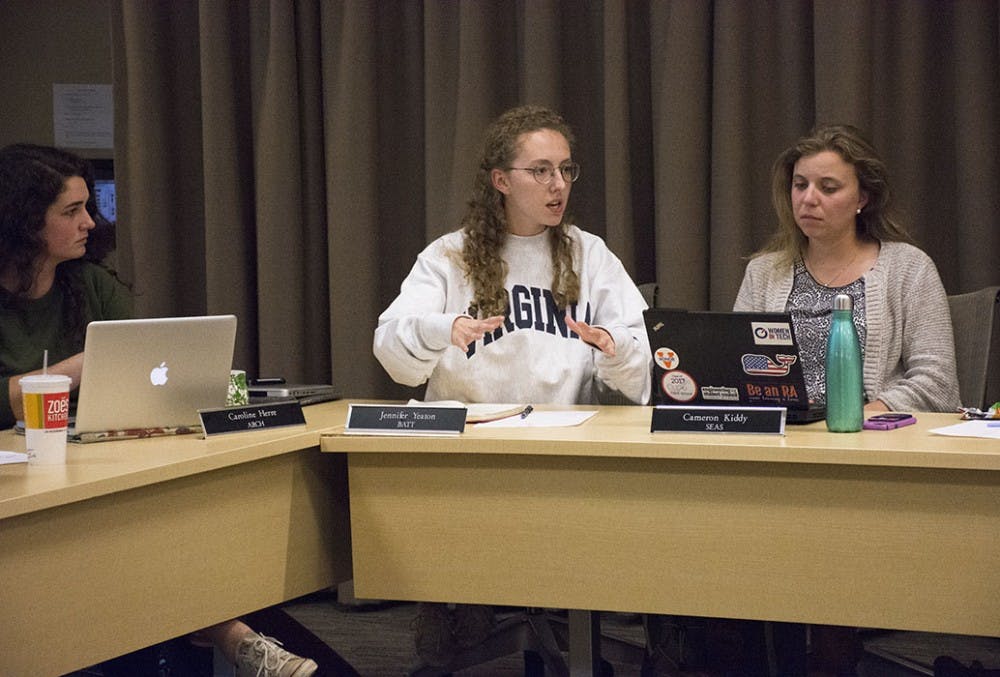Throughout the 2016-17 term of the Honor Committee, the governing body has set out to make changes to several procedural aspects of the Honor system. Varied in priority, these include issues about the Honor pledge, the Informed Retraction, spotlighting of minorities and committee jurisdiction.
The committee hopes to change aspects of the wording on Honor plaques, a measure already listed in the Honor handbook.
“We want to consider making this change because, as it stands, the current pledge may appear to discourage any academic collaboration between students,” Honor Committee Chair Matt West, a fourth-year College student, said in an email statement. “We have found that some students find the current language confusing, particularly those in departments and courses where collaboration is allowed and encouraged.”
Changes with the informed retraction have been under investigation by the Informed Retraction Working Group, established by the Honor Committee.
“We formed the Informed Retraction Working Group to study the IR in depth and submit detailed recommendations for the committee to consider,” West said. “We plan to evaluate their report and discuss implementing positive changes to the IR in the spring.”
The issue of spotlighting — or how specific groups may be more likely to be reported to the Honor Committee — has prompted intense discussion at past meetings. Students in special programs that do not have traditional academic semesters have been identified as a potentially affected group.
“This has been an issue that committees have frequently attempted to address in the past, and to begin to solve this problem, we need to focus on its causes — most notably the implicit biases that can often contribute to such reporting,” West said.
A meeting with the University’s Title IX coordinator and staff has also prompted the Honor Committee to discuss the potential for changes in the committee’s by-laws overseeing the committee’s jurisdiction.
“In most cases, it would not be possible for the Honor Committee to investigate and adjudicate a report that alleged lying during the Title IX case process without having to evaluate the underlying claim of misconduct, often involving potential sexual assault,” West said. “The committee is simply not trained or equipped to evaluate such claims, and the legality of trying to do so could be questionable.”
West also said the committee plans to propose additions to the by-laws. These new updates will allow the Honor Executive Committee to have the authority to decline or defer jurisdiction over reports.
With all of these changes being brought to the table, the committee is taking on issues that could seriously alter the policies of the group.
“I feel like they are all positive changes, but I could see them being a lot to execute,” Soleil Reed, a second-year College student and Honor support officer, said. “I don’t think it's impossible at all, but come the end of the semester and towards the spring semester, there is going to be a lot of work that they have to do at the end of their term.”
West said he views the ambitious nature of so many changes as positive and hopes people believe the changes can be achieved this term.
“I hope that people will view our plan as ambitious — more importantly, though, it's realistic,” West said. “There are now less than six months remaining in our term, and we want to ensure that the many ideas and goals we discussed last spring — for the Informed Retraction, for continued improvements to our case process, for more personal and productive engagement with the community — can translate into action before the end of the term.”







